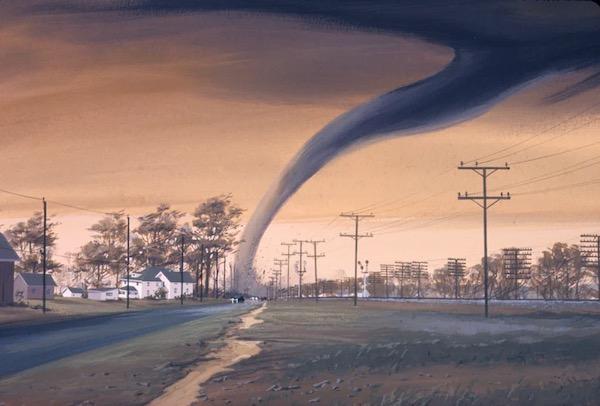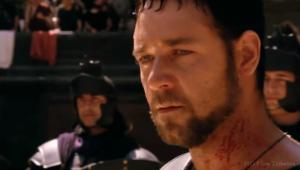Rain's Gonna Fall Part 2: How to Protect Your AV Gear During Severe Storms

First, A few Basic Safety Tips
It's no secret that excessive rain from ordinary storms can lead to serious floods, particularly if you're near the ocean, close to rivers prone to rising water during heavy rain, or even downhill from a dam. Hurricanes (or lesser but still dangerous windstorms) can add to that as their heavy winds push coastal water onshore in a storm surge. But there are actions you can take ahead of time to minimize possible damage. Your local town should be able to tell you whether your home is in (or close to) a flood zone. Doing a bit of research might be a smart move, particularly if you're house hunting.
And don't count on your homeowner's insurance policy to bail you out. It should cover wind damage (up to a point!) but might not cover flooding (or sinkholes!). If you rent, renter's insurance (with similar limitations) is typically available to cover the contents of your home. Federal flood insurance is available as well, though it might be difficult to pay for these days as the price of conventional insurance has gone one through the roof in many areas. (Side note: If recent floods have affected your area and you're in the market for anything used, be sure to carefully check the item for flood damage — especially if it’s a car. Depending on where you live, the title of a flood-damaged vehicle that has been restored to running condition, but not necessarily completely rebuilt, may have a salvage title, sometimes marked with an “S.” Be wary.)
Floods
While there's not much you can do to prepare your gear for unanticipated water damage or floods, there are a few steps you can take that might help. When you first arrange your equipment rack, keep your front-end electronics well clear of windows that might be at risk of shattering in a hurricane, even if those windows have been rated "storm proof." In my case (and perhaps yours) such positioning might be impractical. But since there's always a risk of a roof leak in a heavy storm, at least consider having a tarp available that's large enough to cover the equipment rack. And as recommended in my previous blog, be sure to disconnect the equipment from its electrical outlets during any type of heavy storm to protect it from lightning strikes.
It's harder to make recommendations for protecting loudspeakers because of there are so many variations in size. If a storm threatens a roof leak or a broken window, cover the loudspeakers with large plastic bags to minimize the risk of water damage. This shouldn't be difficult for bookshelf speakers but is a bit trickier in the case of heavy floor standing speakers. Do the best you can to cover them with some kind of plastic.
Tornadoes
Tornadoes can spin up from both thunderstorms and hurricanes. If a tornado hits you directly there's little you can do to avoid major damage to your house, let alone your AV gear. But some preparation might help as there have been plenty of reports of a tornado devastating one house and leaving an adjacent home untouched. Or it might damage or remove all or part of your roof* but leave the interior untouched (apart from rain and wind damage). To protect yourself and other members of your family, pay attention to and closely follow local emergency notifications sent via text and broadcast over radio and television. Emergency measures involve hunkering down in an interior room with no windows. But in my case (and perhaps yours) the only such room is a bathroom with large glass mirrors over the sink and glass doors in the shower stall — not a good choice! In any case think ahead for the best options in your home. Fleeing to a basement, Wizard of Oz style, isn't an option for many of us!
(*Most states have building codes to insure that the roof of a house is securely fastened during construction, but there are no guarantees in a tornado or hurricane. Even so, such regulations might not cover older houses. It might be wise to check with your local building authorities. An older home can often be retrofitted without major reconstruction to better secure its roof and limit the chances of it dislodging in strong winds. If you rent, you might want to check on this with your landlord. He or she might well co-operate as they have even more to lose than you if the roof takes flight.)
Earthquakes
If you live in or near an earthquake zone you need to make good choices when setting up your gear. An earthquake rarely gives advanced warning. I'll reiterate here some of the recommendations I made in a blog I wrote a few years ago: Secure the gear on your shelves or equipment rack to avoid shifting. If the gear is heavy, such as a large AV receiver or power amp, it shouldn't fly off a sturdy shelf unless the quake is "The Big One" we all know will eventually arrive (opening a big market for oceanfront condos in Las Vegas!) If you have lighter gear such as most turntables and/or disc players that could slide off, secure them to their using “earthquake putty” like Blu-Tack. And if you do have a turntable, make sure the tonearm is fastened securely to its resting post. If not, it could bounce off in a quake and irreparably damage the stylus in what might well be a very pricy phono cartridge.
Another key bit of advice to those of us who live in an earthquake zone: Don’t use multi-shelf equipment racks in which each shelf sits on the one below it, secured only via spiked feet. In normal use that arrangement might help minimize the transmission of ordinary in-use vibrations (though I'm skeptical of that). But in an earthquake of sufficient magnitude the spikes on all of the shelves are likely to come free of the tiny nibs into which they loosely fit. This could send each shelf crashing to the floor, taking all of your gear down with it.
Most large, floor-standing speakers should remain relatively immobile in an earthquake of less than earth-shattering magnitude. But if they're tall and relatively light, they might fall over. You’ll want to do your best to make sure that if they do tip over they won’t hit anything, such as that equipment rack. Bookshelf speakers should be secured to their shelves or stands with hurricane putty unless they're designed to be screwed into custom-made stands. Heavy loudspeaker stands are likely to be the best choice, preferably installed without spikes. I once came across a (probably apocryphal) story about a spiked speaker and stand combo that vaulted off the floor in an earthquake and flew across the room spikes first!





























































